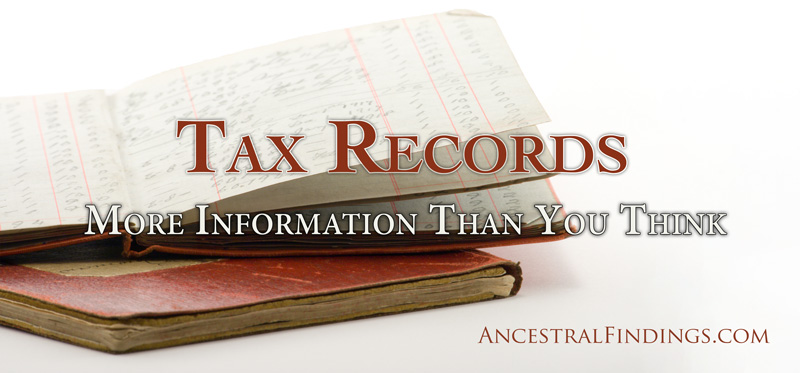Are you missing some important genealogical information you just can’t seem to find? If you’ve looked in all the usual places, as well as some unusual ones, you may be frustrated that you still can’t find the information you need to make your family tree more complete and detailed. It’s an issue most genealogists encounter more than once in their research.
Just because you haven’t found the answer yet doesn’t mean it doesn’t exist somewhere. Have you looked into using periodicals in your research? These are an incredibly important but woefully underutilized tool for genealogists. If you’re not using periodicals, you may be missing the exact information you’re seeking.
Here’s what periodicals are, where to find them, and how to use them to take your genealogical research to the next level.
What are Periodicals, and Why are They Useful in Genealogical Research?
Periodicals are publications such as magazines, journals, and newsletters. They can be published with whatever degree of frequency the person or organization who owns the periodical deems suitable. Weekly, monthly, quarterly, twice-yearly, and annually are all common publication frequencies for periodicals.
Many genealogical and historical organizations publish them, making them valuable resources for genealogical research. They have indexes and abstracts for all kinds of local and regional records, many of which contain information that is not available elsewhere. You may find resources such as marriage records, local newspaper extracts, lists of naturalization records and homestead applications, births, baptisms, biographies of notable local and regional individuals, and more. Because the periodicals are published regularly, they provide an ongoing stream of new genealogical information. By checking them whenever a new issue is released, or reviewing old issues, you may find the exact piece of information you seek. You may also find more detailed information you weren’t even looking for, but that enriches your family history narrative beautifully.
Different periodicals publish different types of information, as well. It pays to become familiar with the national periodicals, as well as the ones in your local area, or the areas or regions in which your ancestors lived. This will give you an idea of what publications will be most useful to you.
Some, like the New England Historical and Genealogical Register, for example, mainly publish new genealogies or correct previously published ones from other sources when new information on that family becomes available. Others focus on different types of genealogical research methodology and use case studies on individuals and families to demonstrate a particular research technique. The National Genealogical Society Quarterly does this with its periodical. Using the information in the case studies, you can apply it to your research and break through any brick walls that are annoying you. You might even be lucky enough to have an ancestor featured in one of the case studies.
You might find some periodicals that focus on how-to articles, such as how to use certain record sets or collections. Others publish book reviews of newly published genealogy books and family histories, and some publish queries from readers asking if any other readers have information on ancestors they are studying. You can write to these people through the periodical to exchange information or publish your own query in it.
Where to Find Periodicals for Genealogical Research
You generally need to be a member of the group that publishes the periodical in order to have access to new issues and the archives of old ones. You can do a Google search to see if there is a genealogical periodical published in your area of research interest, and then join that society or group. If you don’t want to join, you can contact them using the information you found online to inquire about their back catalog and ask if someone will search it for you for a mention of your ancestors. Many groups will do this for a fee, and sometimes even for free (but not all of them, so be sure to ask). If they find an issue with information you would find useful, you can sometimes buy a copy of just that issue, or you may be simply given the information. It all depends on the society that owns the periodical.
How to Research Periodicals
If you have access to a back catalog of periodicals through membership in the organization that publishes it, you need to know how to properly research that catalog to find what you need for your genealogy. More and more organizations are making their back catalogs of periodicals available online, usually with searchable databases. If you are lucky enough to belong to such an organization, then your search should be easy, as you can do it by surname, or by first name and surname together for more accurate results, and get your results online. You can also search by location and subject. Whatever type of search is most likely to get you the results you seek is the one you should do.
If the periodical doesn’t have an online index, you may find it does have a written, published index. You can search for this and then request that back issues be sent to you as needed. At other times, you may need to visit a location where a collection of back issues is stored, such as the organization’s headquarters or a public library with a genealogy section, and search each issue individually. It’s worth it to take the time to do this if it yields the information you need to make your genealogical work shine.
New information is being published in periodicals all the time. Once you find the ones that best suit your needs and have gone through their back catalogs, it is important to keep up with each new issue. You may not always find something of interest to you in each one, but you don’t want to miss the one issue that does have what you need. Keep an eye on periodicals, and your genealogy work, as well as your skills as a genealogist, will be better for it.







